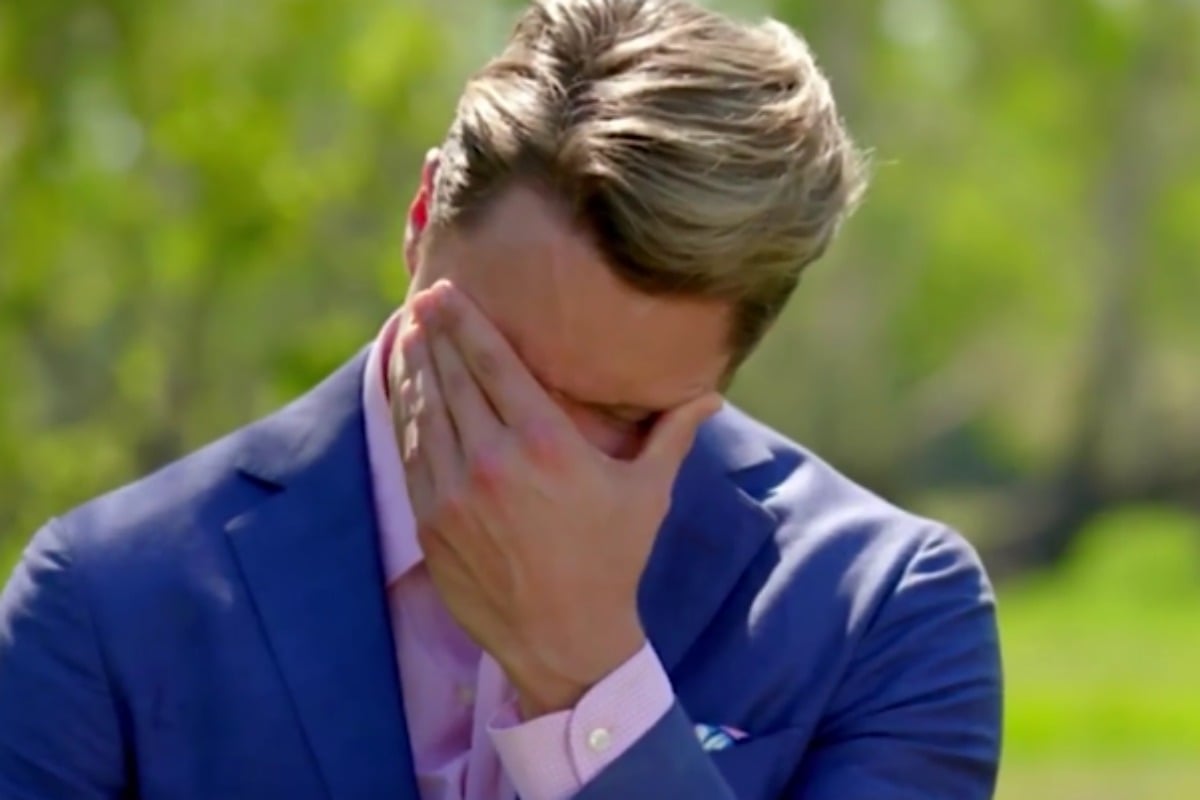
We all knew it was coming.
Todd King, the 26-year-old aspiring police officer from Western Australia, had genuinely fallen in love with Ali Oetjen.
He, like the 17 men who joined him six weeks ago, had been plied with alcohol, canapes, and an absurdly attractive woman – all designed to make him envision a future with Ali from South Australia.
They talked about marriage and they talked about kids. He opened up about his plans to join the police force, and how he would compromise on his goals in order to accommodate hers. He met her family, and she met his.
And then she dumped him, somewhere in the Northern Territory, leaving him to mourn alone, in the outback, with the impending threat of crocodiles and/or dingoes. A camera crew zoomed in on his broken face, as he bent over on the grass, sitting and staring at his hands.
But there was something that happened during those moments – as we saw a man rejected on TV by a woman he loved – that implicitly spoke volumes.
He cried.
He didn’t almost cry. He didn’t swear. He didn’t just put his head in his hands. He cried.
And it broke all the rules.
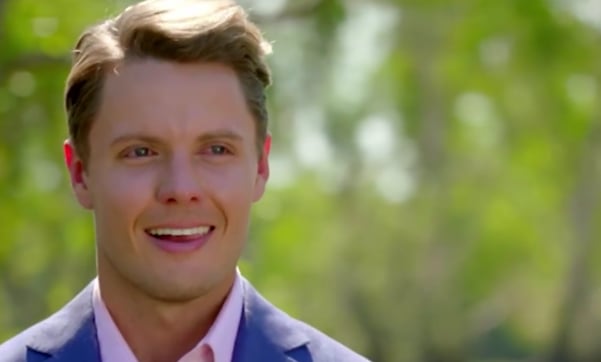
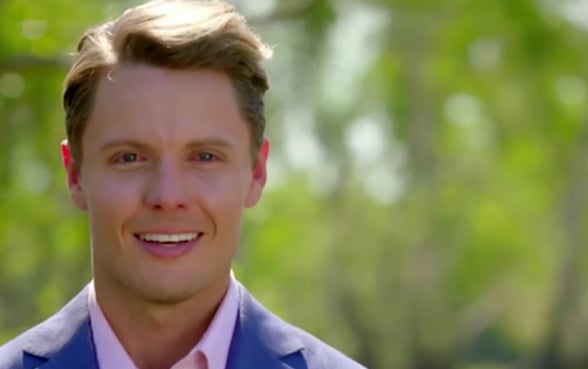

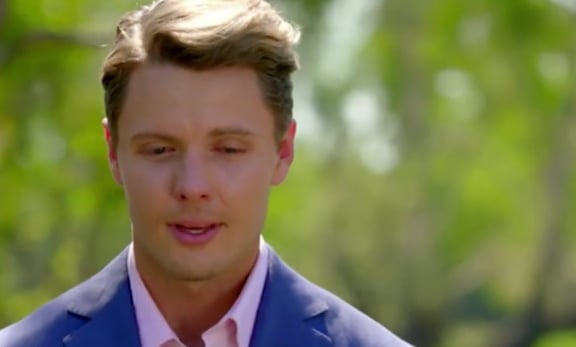
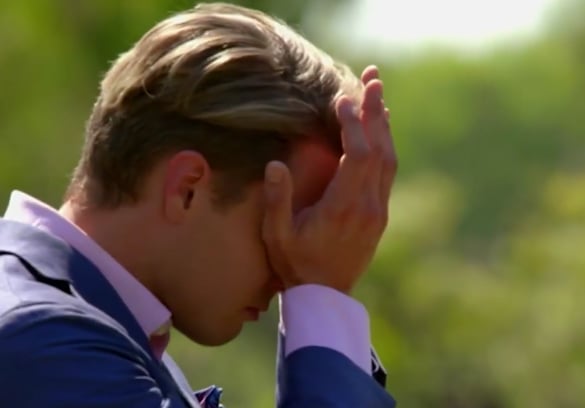
Top Comments
Wow. I'm impressed. This article really takes an empathetic look at the male condition.
The situations that men find ourselves in when we must project impassivity, while our insides are trying to claw their way out. That unheeding pressure from society to suck it up and then quirk an eyebrow. When sipping your beer is the only acceptable outburst.
I thought that this piece showed delicate, yet deep, insight towards a situation that the author has never found herself in.
...and that guy is a big fat freakin' wuss.
I remember crying when my grandma died many years ago and being told by my then girlfriend "stop crying, it's unattractive and makes me uncomfortable."
We're getting to a point where men will be more open with their emotions, but it's going to take a fair while before it's a socially normal thing I'd imagine.